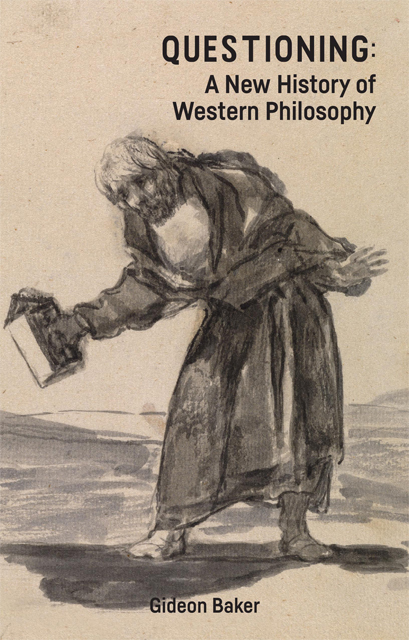4 - Aristotle
Published online by Cambridge University Press: 14 July 2023
Summary
IF PLATO’S QUESTION WAS the question of identity, of what stays the same in change, then Plato’s student, Aristotle (384–322 BCE), asked about change (kinēsis) itself. In particular, Aristotle wanted to conceive of change without splitting the world in two as Plato had done. Instead of Plato’s two worlds – a world of change and a world of ideas that don’t change – Aristotle sought to think change and identity together in the same world – our world ‘where everything comes to be from what is’ (Aristotle, Metaphysics 12.6.1071b). After all, the world of change is not entirely in motion – things change in predictable rather than random ways. While an acorn may or may not become an oak, it cannot become a willow tree. And not only in nature is change other than flux. The block of marble does not become a statue by chance. The potential of the marble to become a statue requires a sculptor to give it form. In short, ‘actuality is the organization (logos) of that which is potentially’ (Aristotle, De Anima 2.4.415b, emphasis added).
But if everything comes to be from what is, then the question of how change is possible remains. In his Metaphysics (12.2.1069b), Aristotle suggests an answer: things come to be from what is, but from what is potentially, not from what is in actuality. This idea of generation means that, for Aristotle (Metaphysics 12.3.1070a), we can do without Plato’s ideas. Particular human beings, for example, appear not thanks to the idea ‘human’ but because they are capable of generating other such beings (indeed, all living or ‘ensouled’ things share this capacity ‘to make another such as itself’ [De Anima 2.4.415a30]). Plato’s ideas cannot explain how such change comes about (Metaphysics 12.6.1071b).
Rather than starting from their ideas, then, we need to question beginning from particular things: ‘Because what is sure and better known as conforming to reason comes to be from what is unsure but more apparent’ (De Anima 2.2.413a). Our questions need to be inductive (working up from particular things), not deductive (working down from first principles). Sticking with the example of particular human beings: for Aristotle (De Anima 2.2.414a), we need to invert Plato’s approach since ‘the body is not the actuality of the soul, but the soul is the actuality of some body’.
- Type
- Chapter
- Information
- QuestioningA New History of Western Philosophy, pp. 41 - 52Publisher: Edinburgh University PressPrint publication year: 2022

